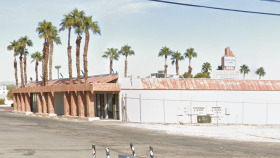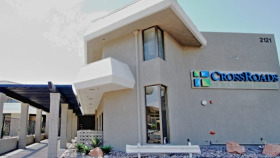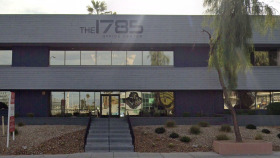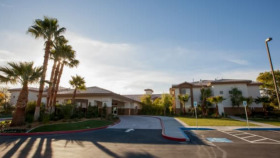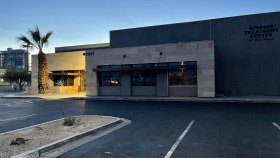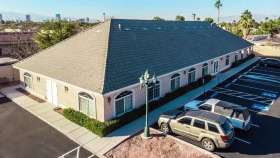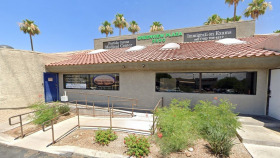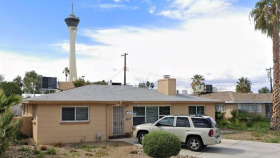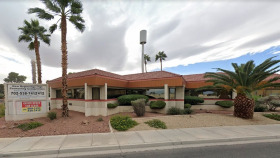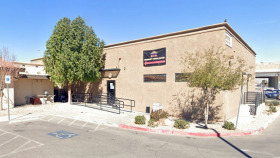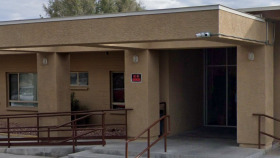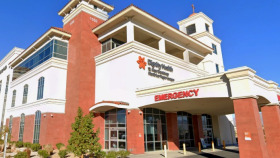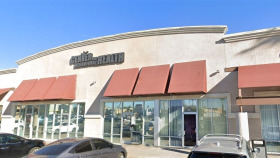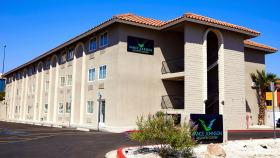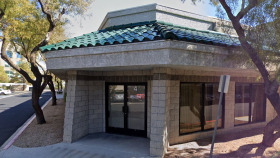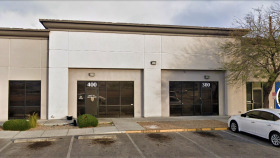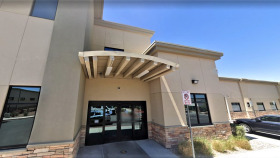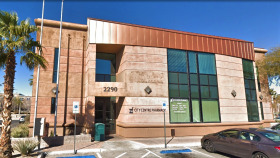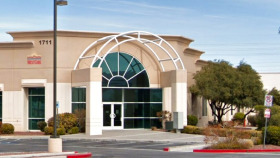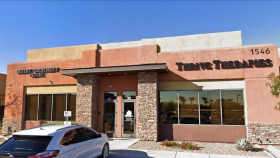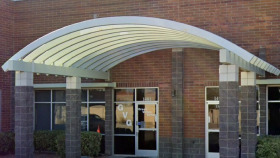Expert Insights
The U.S. Food and Drug Administration recently approved the sale of Narcan without a prescription. Known as the overdose-reversing drug, Narcan is the first opioid treatment to be sold over the counter. And this will have what many experts hope will have a positive impact on Las Vegas. According to the Nevada Health Department, there were 1,412 opioid-related deaths in Clark County from 2018 to 2022. This is a huge spike in overdose deaths, meaning the easy access to Narcan could have potentially saved all or a large portion of those lives.
~ Jo Harvey
How Expensive is Drug Rehab in Las Vegas?
Getting help costs less than not treating your addiction. Continuing to misuse substances affects your health, relationships, and ability to work.
The cost of care depends on a few factors:
- Location: Grand vistas of deserts or mountains may influence the cost
- Facility type: Outpatient generally costs less than inpatient care
- Program size: Large programs generally cost less
- Insurance: Your insurance coverage and networks can influence the price
- Types of treatments: Wide varieties of treatment options may increase costs
- Length of the program: Programs typically last 30 to 90 days
- Extra amenities: Gyms, pools, spas, massage therapy, and nutritionists can cost more
Payment Methods for Drug and Alcohol Rehab in Nevada
Often, a facility will work with you to establish payment options. These can be sliding-scale programs, where your income will be evaluated and your costs adjusted so you can pay within your means. Other facilities and detox centers in Las Vegas may offer financing so you can pay across monthly installments over various time periods. Moreover, you may find that your private insurance has in-network coverage for addiction treatment centers in Las Vegas. Contacting your provider can confirm this.
Of the 109 Nevada facilities that responded to the National Survey of Substance Abuse Treatment and Services:
Are There Low-Cost and Free Drug Rehab Centers in Las Vegas?
Under the Affordable Care Act (ACA), more people can qualify for insurance. It is important to know that help for mental health and substance use disorders (SUDs) is covered under the ACA. For Las Vegas drug rehabs, this includes outpatient and inpatient care to assess and treat SUDs. Specifically, ACA insurance in Nevada covers such services as counseling, behavioral health treatment, and psychotherapy.
If you do not qualify for ACA coverage, you may qualify for low-cost or free services that are subsidized by grants and government funding. To be eligible, you may need to show you are a resident of Nevada, what your income is, and any proof of insurance or lack of insurance.
Please don’t wait to get help. Contact
800-681-1058
(Sponsored)
to learn more about low-cost or free drug rehab centers in Las Vegas.
How Does Las Vegas Compare in Alcohol and Drug Use?
Famously known as Sin City, Las Vegas is known for its gambling, shopping, fine dining, entertainment, and nightlife. However, fentanyl overdoses are on the rise in Clark County. To combat the growing opioid epidemic, there are more than 40 alcohol and drug rehab centers in Las Vegas. These facilities can help you recover from your addiction, whatever substance it may be—illicit drugs, prescription drugs, or alcohol. With specialized treatment options available, these rehabs can align with your needs, recovery goals, preferred location, and financial situation.
Substance Use Laws in Las Vegas
The Las Vegas Strip and Las Vegas are technically under different jurisdictions. The Strip falls under Clark County laws. Regarding alcohol and drugs, they basically agree. Here are several laws on the books.
Good Samaritan Law: This law prevents legal action against Las Vegas residents who administer naloxone or call 911 to help someone who may be overdosing on opioids. It also gives immunity to residents who seek medical treatment for an overdose for themselves or someone else. The law also allows pharmacies to dispense naloxone to people without a prescription.
Controlled Substance Abuse Prevention Act: This law requires physicians to prescribe responsibly by ensuring the benefits outweigh the risks, to prevent potential substance misuse that starts with unnecessarily prescribed opioids.
Assembly Bill 236: This Nevada law is designed to lessen sentences for those found guilty of breaking laws related to controlled substances. The goal is to reduce Nevada’s prison population by keeping low-level dealers and those with substance use disorders out of jail.
Marijuana Law: Nevada marijuana law permits adults 21 years of age and older to possess up to one ounce of marijuana. However, possession and consumption of recreational marijuana must take place at private residences or licensed social-use venues.
Open Container Laws: Both Las Vegas and the Strip allow open alcohol containers, provided the containers are not glass. Plastic and paper cups are okay. The Strip allows an aluminum open container, though, and Las Vegas does not. However, having an open container in a car is illegal.
Drinking in Public or Public Intoxication: Drinking in public and public intoxication are legal in Las Vegas. However, breaching the peace may amount to a misdemeanor. Where you drink has limitations. You cannot drink within 1,000 feet of:
- Public or private schools
- Places of worship
- Hospitals
- Bus stops
- Drug or alcohol rehab facilities
Law Enforcement Assisted Diversion Program: For minor drug offenses, law enforcement personnel may opt to bypass the criminal justice system altogether and refer you for alcohol and drug treatment. Police may involve a mobile outreach team with drug and alcohol counselors to provide you with support on the spot.
Resources
- National Institute on Drug Abuse. (2020). Nevada: Opioid-Involved Deaths and Related Harms.
- Substance Abuse and Mental Health Services Administration. (2020). National Survey of Substance Abuse Treatment Services Report.
- U. S. Department of Veteran Affairs. (2020). PTSD: National Center for PTSD.
- National Survey of Substance Abuse Treatment Services (N-SSATS). (2022). 2020 N-SSATS State Profile: Nevada.
- Nevada Health Link. (2021). Health Insurance Plan Options & What’s Covered.
- Help.org. (2022). Scholarships for Drug and Alcohol Rehab.


